Sean MacBride Peace Prize
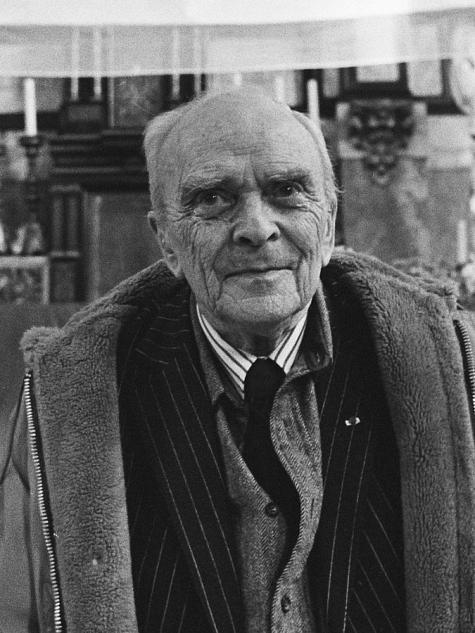
➡️ SEAN MACBRIDE PEACE PRIZE by the International Peace Bureau
The Sean MacBride Peace Prize is a prestigious award given annually by the International Peace Bureau (IPB). The prize is named after Sean MacBride, a Nobel Peace Prize laureate 1974, former Foreign Minister of Ireland, and former chairman and president of the IPB.
The Sean MacBride Peace Prize was established in 1992 to honour individuals, organisations, or movements that have made outstanding contributions to world peace, disarmament, and/or human rights.
Notable recipients include whistleblower Daniel Ellsberg, Jeremy Corbyn, Noam Chomsky, Chelsea Manning, Mayors for Peace, Hibakusha, and Mordechai Vanunu.
Jump straight to our resources on the ➡️ Sean MacBride Prize
Explore our comprehensive guides on -
-
Other Inspiring Peace Prizes
-
Our Guides to Peace, Human Rights & Nuclear Disarmament
Recipients of the Sean MacBride Peace Prize are recognised for their courage, dedication, and significant impact in promoting a more peaceful world. The award honours and highlights the achievements and commitment of awardees who are chosen by the IPB Steering Committee.
“The big powers are traveling on the dangerous road of armament. The signpost just ahead of us is 'Oblivion.' Can the march on this road be stopped? Yes, if public opinion uses the power it now has.” - Sean MacBride, Nobel lecture
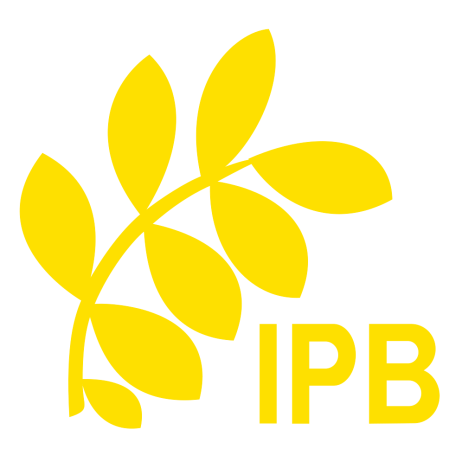
Sean MacBride Laureates
The Sean MacBride Prize was established in 1992. Our guide features an in-depth look at each year's laureates. Below, we have highlighted some of the exceptional awardees in past years.
-
Ukrainian Pacifism Movement (2023)
Established in 2019, the Ukrainian Pacifism Movement is a non-profit NGO that protests against military conscription. They advocate for nonviolent conflict resolution, disarmament, and the right to peace.
Executive Secretary Yurii Sheliazhenko is facing the possibility of 5 years in prison for speaking in support of peace in Ukraine. The Ukrainian government has formally charged Yurii with the crime of justifying Russian aggression.
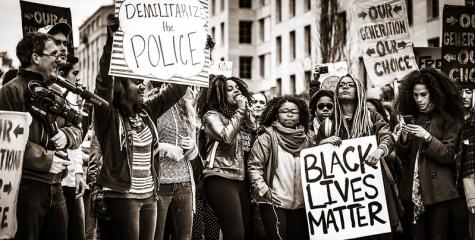
-
Black Lives Matter (2020)
The BLM movement advocates for the rights and equality of Black individuals, highlighting the need to address systemic racism and injustice. It highlights serious issues such as police brutality, racial profiling, and inequalities ingrained in society.
The movement gained global support and, during its peak, was one of the largest movements in U.S. history. A significant turning point was the extrajudicial killing of George Floyd, who became the face of this violent trend across the country.
The BLM movement also seeks reparations for the harms caused to African Americans by historical slavery and modern-day inequalities in healthcare, education, housing, and economic opportunities.
-
Bruce Kent (2019)
Kent was a Roman Catholic priest who dedicated his life to the campaign for nuclear disarmament, becoming a figurehead and inspiration to peace advocates. He was the vice president of the CND and Pax Christi.
He was also one of the founders and main organisers of the European Nuclear Disarmament Campaign in the 1980s and IPB President from 1985 to 1992. During many of his public speeches, he condemned the use of nuclear weapons, labelling them immoral and weapons of mass murder.
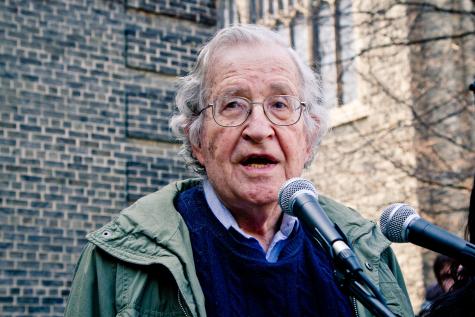
-
Noam Chomsky (2017)
Chomsky has published over 100 books and was voted one of the world's top public intellectuals. He is a widely respected critic of U.S. foreign policies and the mass media. He is a tireless advocate for a better future.
Chomsky's critiques focus on the U.S. War on Terror, U.S. imperialism, nuclear weapons, and climate change. Chomsky has dedicated his life to promoting peace, advocating for social justice, and engaging in political activism.
-
Jeremy Corbyn (2017)
Corbyn has been a member of the UK parliament for 42 years, and he is a lifelong campaigner against racism, war, and nuclear weapons. He was a vocal opponent of the Iraq war and advocates for a more peaceful and tolerant world. He is a prominent supporter of Palestinian rights.
Many of his progressive ideologies are based on reducing military spending and investing in health, welfare, and education instead.
-
Chelsea Manning (2013)
Manning is an American activist and whistleblower who was involved in disclosing over 750,000 sensitive documents to the Wikileaks organisation, which exposed U.S. war crimes. She was convicted of Espionage and was imprisoned for 7 years.
The material, which was leaked over two years, detailed U.S. involvement in war crimes related to the Baghdad airstrikes, the war in Afghanistan and Iraq, Cablegate, which included details on human rights, terrorism, the UN, and international and foreign government affairs, and the Guantanamo Bay files leak.
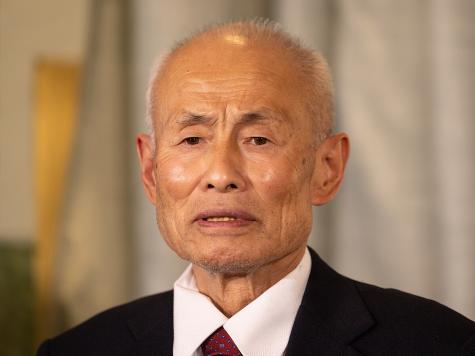
-
Nihon Hidankyo (2003)
Nihon Hidankyo is an organisation of A-bomb survivors of Hiroshima and Nagasaki who promote the social and economic rights of all Hibakusha.
They are committed to fighting for a world which is free of nuclear weapons. They collect witness testimonies, which serve as living proof as to why these weapons of mass murder should never be used again.
The organisation lobbies the Japanese government and governments worldwide to abolish nuclear weapons, and for state compensations for survivors. Toshiyuki Mimaki (pictured) is an activist and co-chair of Nihon Hidankyo, he witnessed the atomic bombing of Hiromshima.
Sean MacBride (1904 – 1988)
Sean MacBride was an Irishman who fought against British colonial rule. He studied law and became the Minister for External Affairs for the Irish Republicans.
His commitment to peace, diplomacy, disarmament, and human rights was awarded with the Lenin Peace Prize and the Nobel Peace Prize. At various stages of his career, he was elected president of the IPB, co-founded Amnesty International, served as Secretary-General of the International Commission of Jurists, was the UN Commissioner for Namibia, and held the position of Assistant Secretary-General of the UN.
MacBride helped launch the Bradford Proposals on World Disarmament, which set the foundations for the first UN Special Session on Disarmament. He also established the MacBride Appeal against Nuclear Weapons, which jump-started the World Court Project on nuclear weapons.
As a result, in 1996, the ICJ released its advisory opinion on the Legality of the Threat or Use of Nuclear Weapons. It ruled that nuclear weapons are generally illegal, and all nuclear states 'are obligated to bring to a conclusion negotiations on nuclear disarmament in all its aspects.'
"The right of an individual to refuse to kill, to torture, or to participate in the preparation for the nuclear destruction of humanity seems to me to be fundamental" - Sean MacBride
Author: Rachael Mellor, 19.06.25 licensed under CC BY-SA 4.0
For further reading on the Sean MacBride Prize see below ⬇️
Info on Sean MacBride Peace Prize
- General Info[19]
- 2025 - Hania Bitar, Randa Siniora, and Boris Kagarlitsky[43]
- 2024 Ima Lourembam Nganbi, Dr. Pantibonliu Gonmei, and a Third Indigenous Woman. Parents Circle-Families Forum & Alliance for Middle East Peace[28]
- 2023 Our House, Movement of Conscientious Objectors, Ukrainian Pacifist Movement, and Tore Nærland[7]
- 2022 Alfredo Lubang, Asya Maruket & Yurii Sheliazhenko, Hiroshi Takakusaki[12]
- 2021 Alexander Kmentt (Austria)[29]
- 2020 Black Lives Matter & Hibakusha Appeal[1]
- 2019 Elayne Whyte Gómez and Bruce Kent[8]
- 2018 AHDR & H4C, Helena Maleno & Douglas Roche[30]
- 2017 Okinawa Council Against Henoko Base, Noam Chomsky & Jeremy Corbyn[1]
- 2016 Colin Archer (UK)
- 2015 Lampedusa (Italy) and Gangjeon Village, Jeju Island (S. Korea)[32]
- 2014 Republic of the Marshall Islands[7]
- 2013 Bradley Manning (USA)[1]
- 2012 Nawal El Saadawi (Egypt) and Lina Ben Mhenni (Tunisia)
- 2011 Hanaa Edwar (Iraq)[10]
- 2011 Peter Becker (Germany)[8]
- 2010 Binalakshmi Nepram (India)[23]
- 2009 Betty Reardon (USA)[17]
- 2008 Jackie Cabasso (USA)[17]
- 2007 Jayantha Dhanapala (Sri Lanka)[14]
- 2006 Mayors for Peace (Japan) - Tadatoshi Akiba & Iccho Itoh[23]
- 2005 No award made
- 2004 Geneva Initiative on the Middle East
- 2003 Nihon Hidankyo (Japan)
- 2002 Barbara Lee (USA)[25]
- 2001 Rosalie Bertell (Canada)
- 2000 Praful Bidwai (India)[23]
- 2000 Achin Vanaik (India)[9]
- 1999 Barbara Gladysch (Germany)[14]
- 1998 John Hume (Northern Ireland)[49]
- 1997 Seeds of Hope (UK)[5]
- 1996 Selim Beslagic (Bosnia)
- 1995 Committee of Soldiers' Mothers of Russia
- 1994 Mordechai Vanunu (Israel)
- 1993 Hilda Lini (Vanuatu)[11]
- 1992 Michael D. Higgins (Ireland)[18]